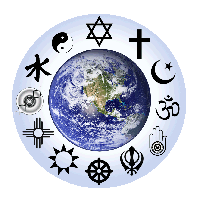Far from fading away in modern societies, religion is very much present and in some ways is becoming more relevant than before in Europe and around the world. Yet, we are often not aware of how to go about looking for religion in modern society, or even how to define the two problematic terms. This course is thus organized around a single aim: to equip students to probe the intersection between religion and society. We will review key sociological and anthropological approaches to religion and secularization. Then we will focus on a critical realist perspective to appreciate how society and religion both continue to be “made” in relation to each other and to social structures. Special attention will be paid to historical and postcolonial formations of modern world society. Equipped with conceptual and methodological tools, we will move to seeing how religion is always and already public. We will study the intersection of religion with politics, institutions, science, and culture, and understand how such relations have changed over time. In the final module, we will zoom in on religious personhood and probe how religion engages with contemporary social concerns of identity, ethics, and spirituality.
This is not a course to sit back and let flow! It will require conceptual engagement, reading and writing. Above all, students must be prepared to learn together with the instructor, and to reflect sensitively and creatively on their own assumptions. The course will be assessed through class participation, three short assignments including self-directed fieldwork, and an essay. The course will run over 10 weekly sessions of two hours each, in-person only. All lectures, readings, assignments, and discussions will be in English.

- Opettaja
Ali Qadir